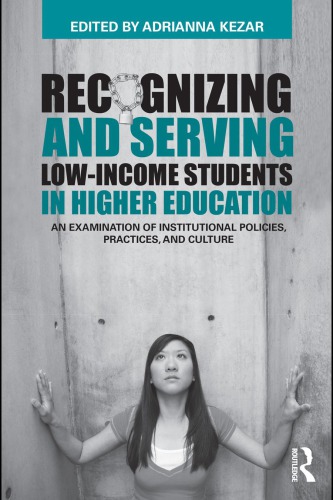

Most ebook files are in PDF format, so you can easily read them using various software such as Foxit Reader or directly on the Google Chrome browser.
Some ebook files are released by publishers in other formats such as .awz, .mobi, .epub, .fb2, etc. You may need to install specific software to read these formats on mobile/PC, such as Calibre.
Please read the tutorial at this link. https://ebooknice.com/page/post?id=faq
We offer FREE conversion to the popular formats you request; however, this may take some time. Therefore, right after payment, please email us, and we will try to provide the service as quickly as possible.
For some exceptional file formats or broken links (if any), please refrain from opening any disputes. Instead, email us first, and we will try to assist within a maximum of 6 hours.
EbookNice Team

Status:
Available0.0
0 reviewsWritten for administrators, faculty, and staff in Higher Education who are working with low income and first-generation college students, Recognizing and Serving Low-Income Students in Higher Education uncovers organizational biases that prevent post-secondary institutions from adequately serving these students. This volume offers practical guidance for adopting new or revised policies and practices that have the potential to help these students thrive.
This contributed volume is based on empirical studies that specifically examine the policies and practices of postsecondary institutions in the United States, England, and Canada. The contributing authors argue that discussions of diversity will be enriched by a better understanding of how institutional policies and practices affect low-income students. Unlike most studies on this topic, this volume focuses on institutional rather than federal, state and public policy. Institutional policies and practices have been largely ignored and this volume lifts the veil on processes that have remained hidden.